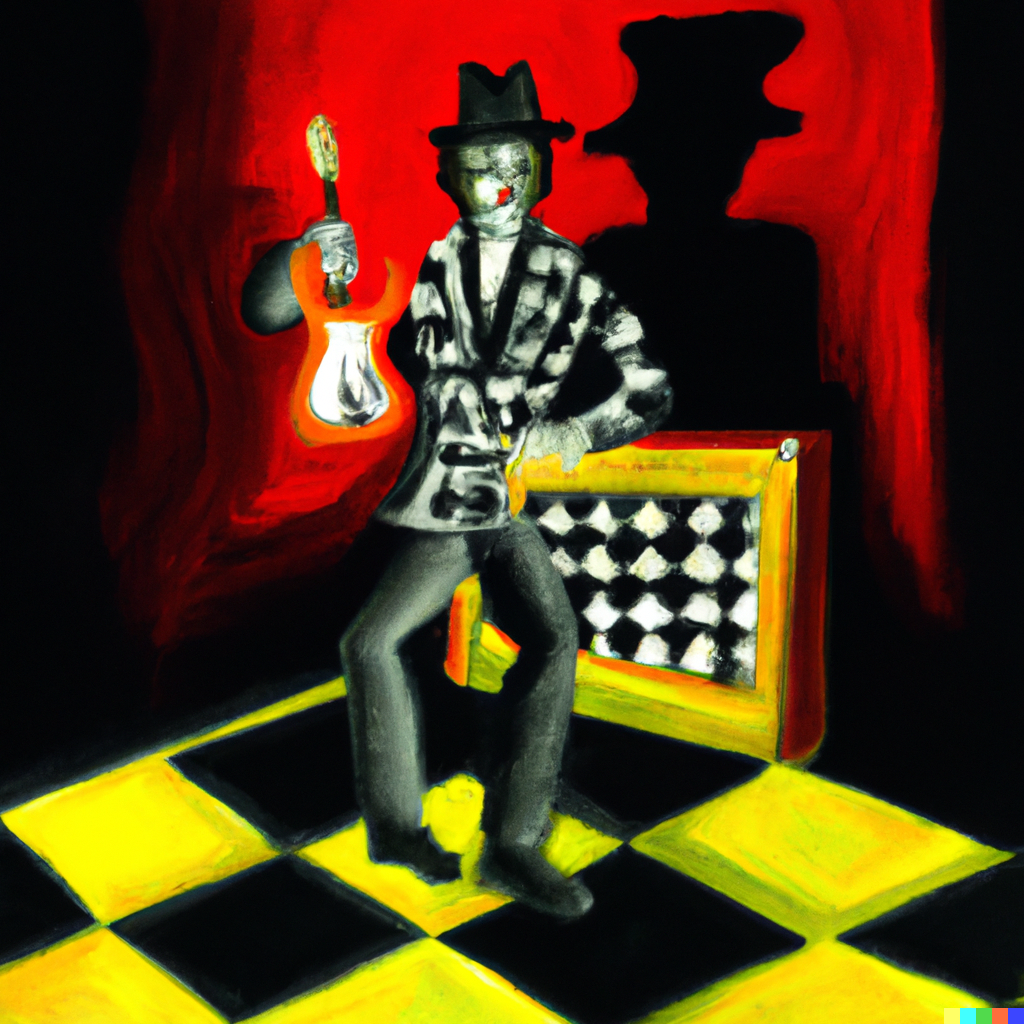Coauthored with Pete Mathias.
In 2022, AI went mainstream. Creatives look at ChatGPT, Dalle II, and other AI apps with fascination— and fear:
Which creative fields will AI conquer? Which creative jobs will AI automate? Which “talents” will be obsolete?
We believe the creatives will be OK. Let’s take a step back to understand why.
Let’s also ground this conversation by drawing practical parallels. Chess and music are perfect theaters for understanding AI— what it can and can’t do. Chess typifies where AI will dominate. Music typifies where AI won’t.
BTW: Nicole plays chess, Pete plays drums.
(We were probably biased writing this.)
Nerds vs Rockstars: Rockstars win again
AI overtook Grandmasters, but will AI overtake Rockstars? Probably not. The nerds draw the short straw yet again.
AI will only serve to emphasize the difference between “talent” and “skill”. While providing the tools needed to pave the way for a new era of music, creative reimagining or renaissance 2.0.
Key differences: Music vs Chess
In both music and chess, a player 1) composes 2) performs. AI breaks performance into perfect and imperfect play. The delineation underscores where AI will supersede versus help others succeed.
- Chess is a “perfect game”— there is a right answer.
- Music is an “imperfect game”— there is no right answer.
Imperfect games, like music, are walled gardens that benefit from AI without conceding to AI. AI lowers barriers to entry which means that more people can participate. However, that influx of middle curve music has an opportunity to emphasize the chasm between skill and innate talent found in right curve music.
Just as “spell-check” gave the power of the pen to those otherwise disadvantaged (immigrants, the dyslexic, etc), so too will AI applications in music open access to this creative expression. But just as spell-check won’t make you Shakespeare, A.I. in music won’t make you Bach— or Bieber for that matter.
1951: We've come a long way?
Artificial Intelligence hit both our crafts almost 75 years ago. In 1951, a computer played chess for the first time. Six years later, a computer wrote a song for the first time.
A generation later, where are we? In 1997, the IBM Supercomputer Deep Blue beat chess grandmaster Garry Kasparov. But we don’t see computers charting the Billboard Top 100.
The reality of where we are: Nicole (once ranked #2 for girls in the U.S. in chess) would lose every time to the best chess computer. But Pete or his bandmates in Filligar won’t lose any gigs any-time soon to computers. AI “hits different” in music than chess.
Even as some see Open AI’s ChatGPT or Dalle II as a “Death Sentence” to creative professions, in fact AI in the Arts will surely breathe new life. AI will advance the arts– the same way that other tech like the Pen, Printing Press, Phonograph, or iPod created new artistic epochs.
AI models in Chess & Music
Chess is a bit different. Yes, similar to music a player composes and performs, but there are a finite number or ways to achieve the goal of winning. In chess, “The Shannon Number” describes a lower-bound estimate of 10 ^ 120 numbers of moves that can occur in a given game.
But there is no Shannon Number in music. Music has many layers and dimensions. Yes, there are a finite number of human-audible frequencies (i.e. sounds). Going back to at least 1935, artists have wondered if music is finite: “Will there come a time when all melodies, all harmonious combinations of sounds will come to an end?” wondered one musician.
But music has what chess does not: interpretation. Musicians call “interpretation” a lot of things: tempo, timbre, dynamic. You cannot “interpret” Checkmate– it’s a 1 or a 0. But you can “interpret” a Chorus. The player can make the same set of notes sound wildly different.
Beyond music and chess: AI and the workforce
When asked recently about “How AI will impact the job force,” a notable economist and former Secretary of Treasury replied: “People forget: jobs are bundles of tasks. Some of those tasks might be automated by AI; many will not. Overall AI should be viewed as an enabler, not a threat, for the workforce.” So true.
Just as “jobs are bundles of tasks,” music is a bundle of a lot of things. Creating, recording, distributing, commercializing– this list goes on.
Language and music models can facilitate many of these tasks. For instance, AI models can classify types of music, translate music theory, detect instruments, catalog frequencies, suggest popular lyrics, compose catchy riffs etc. However, AI cannot systematically create, innovate or land hits. Performance and composition require human interpretation and judgment which are not boolean.
Conclusion: Don’t outrun AI; run with it
In 2016, Lee Se-Dol who is a master in the game of Go (similar to chess), retired. He had just played a 5 match tournament against Deep Mind’s AlphaGo. He lost 4 games, won 1 against the computer. His reason for retiring? "I'm not at the top even if I become the number one."
Chess players, like Lee Se-Dol, can try to outrun AI but will inevitably run out of steam. Wherever the concept of “first place” exists, AI will find a way to win. There is no first place in music. Musicians are not sprinting against technology but rather with it.
Musicians can try to outrun AI, or an artist can learn to embrace it, and use it as a tool to reinforce their own human capabilities.
This is above all a psychological positioning towards technology.

